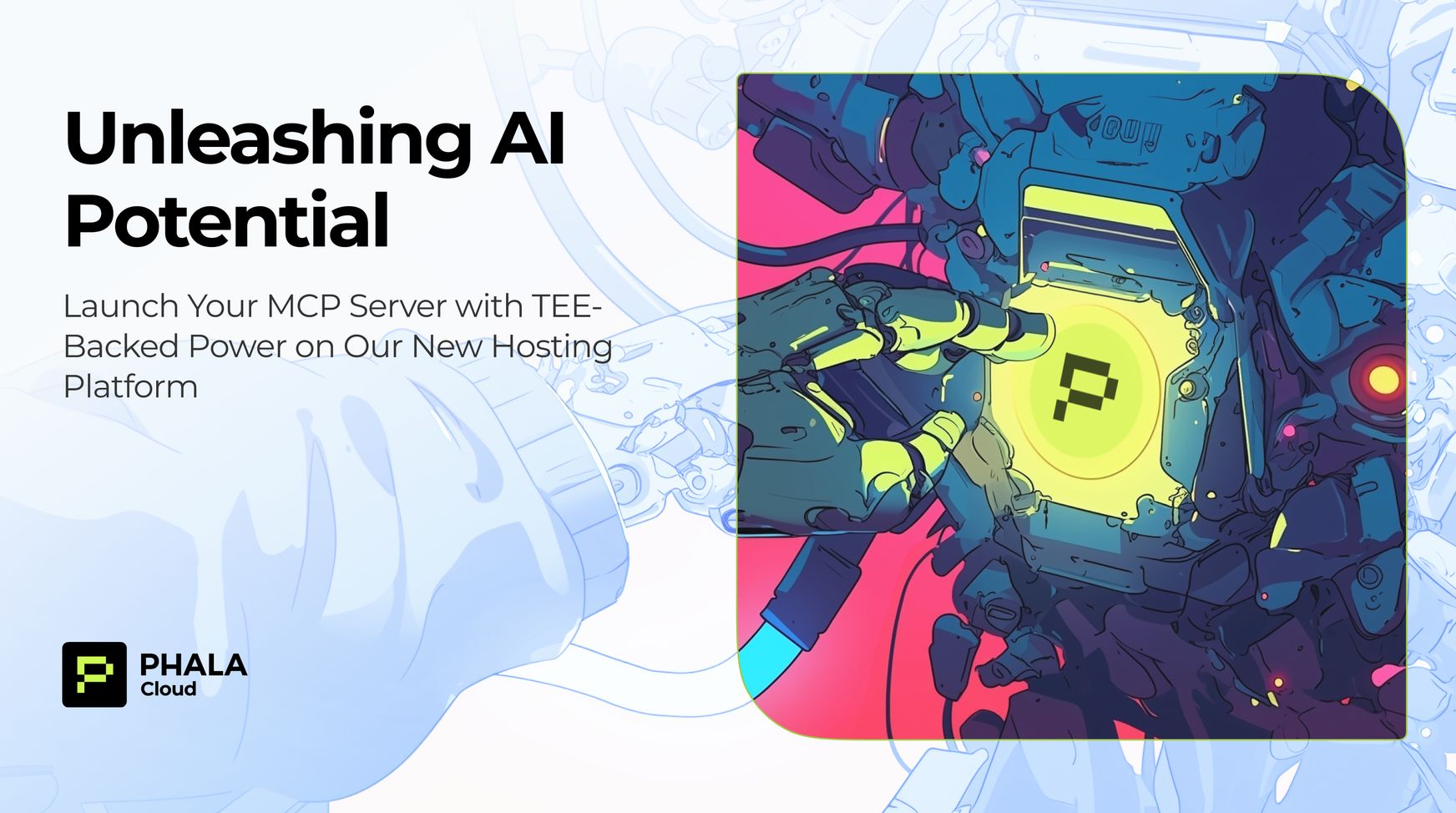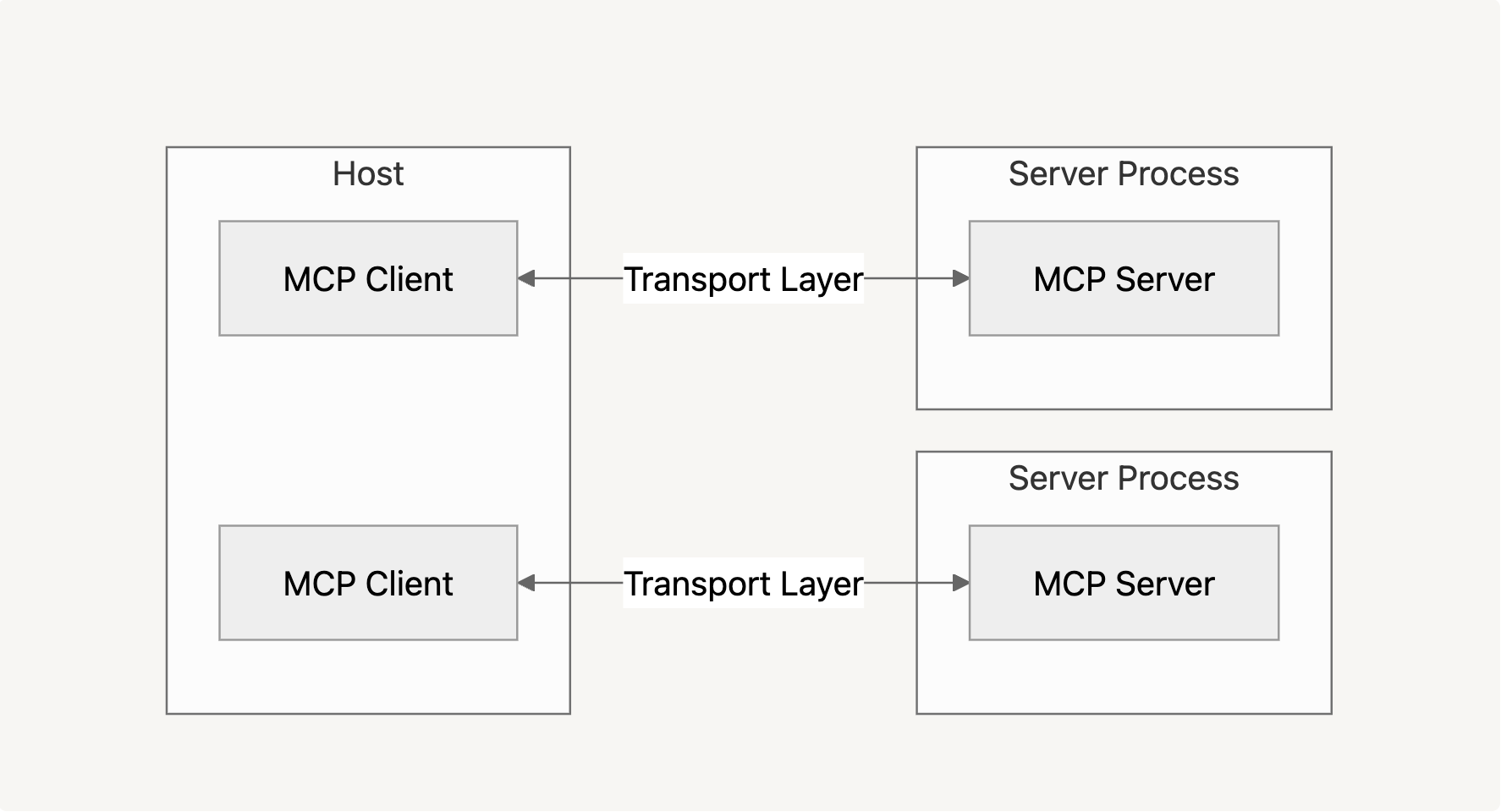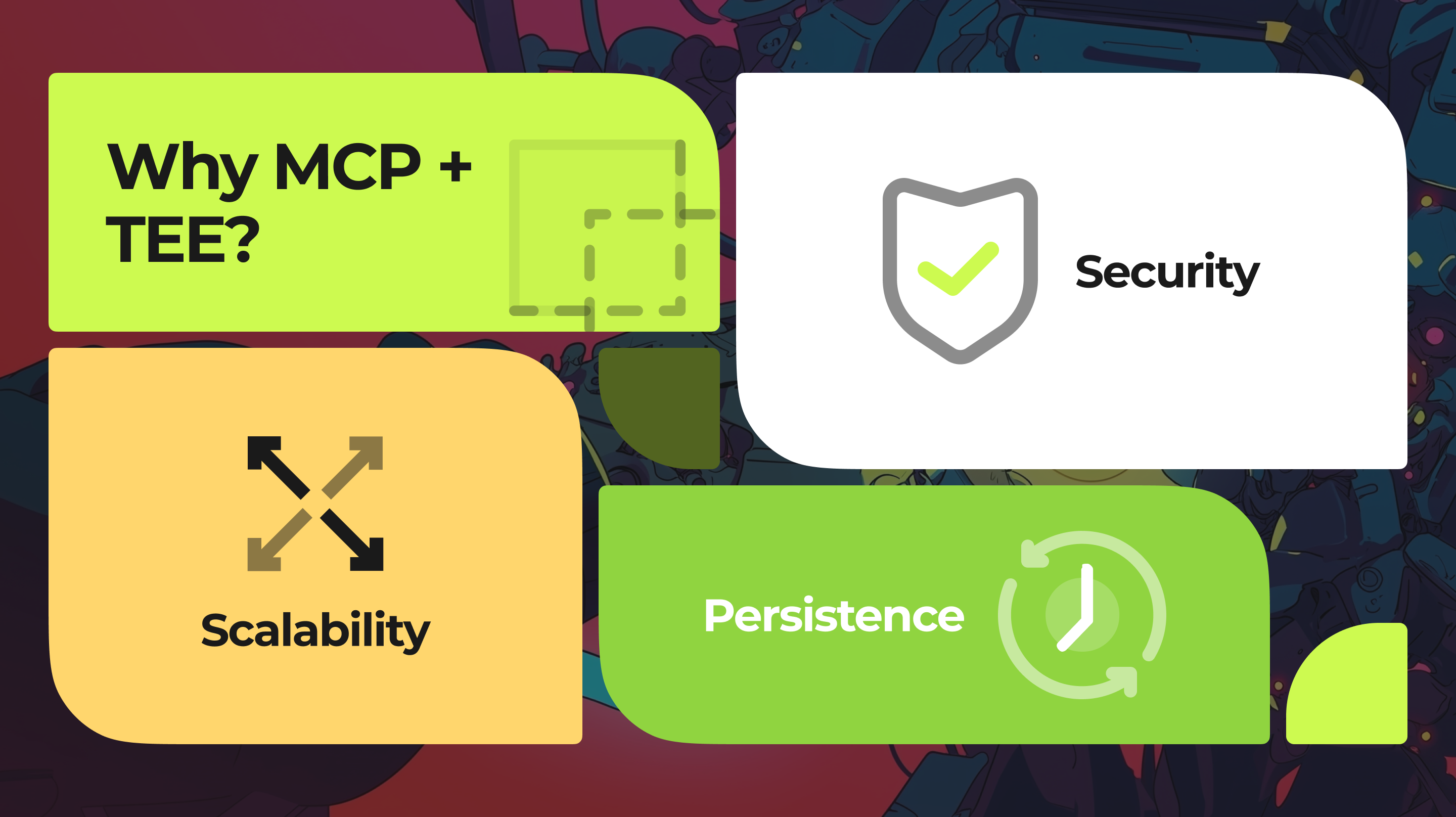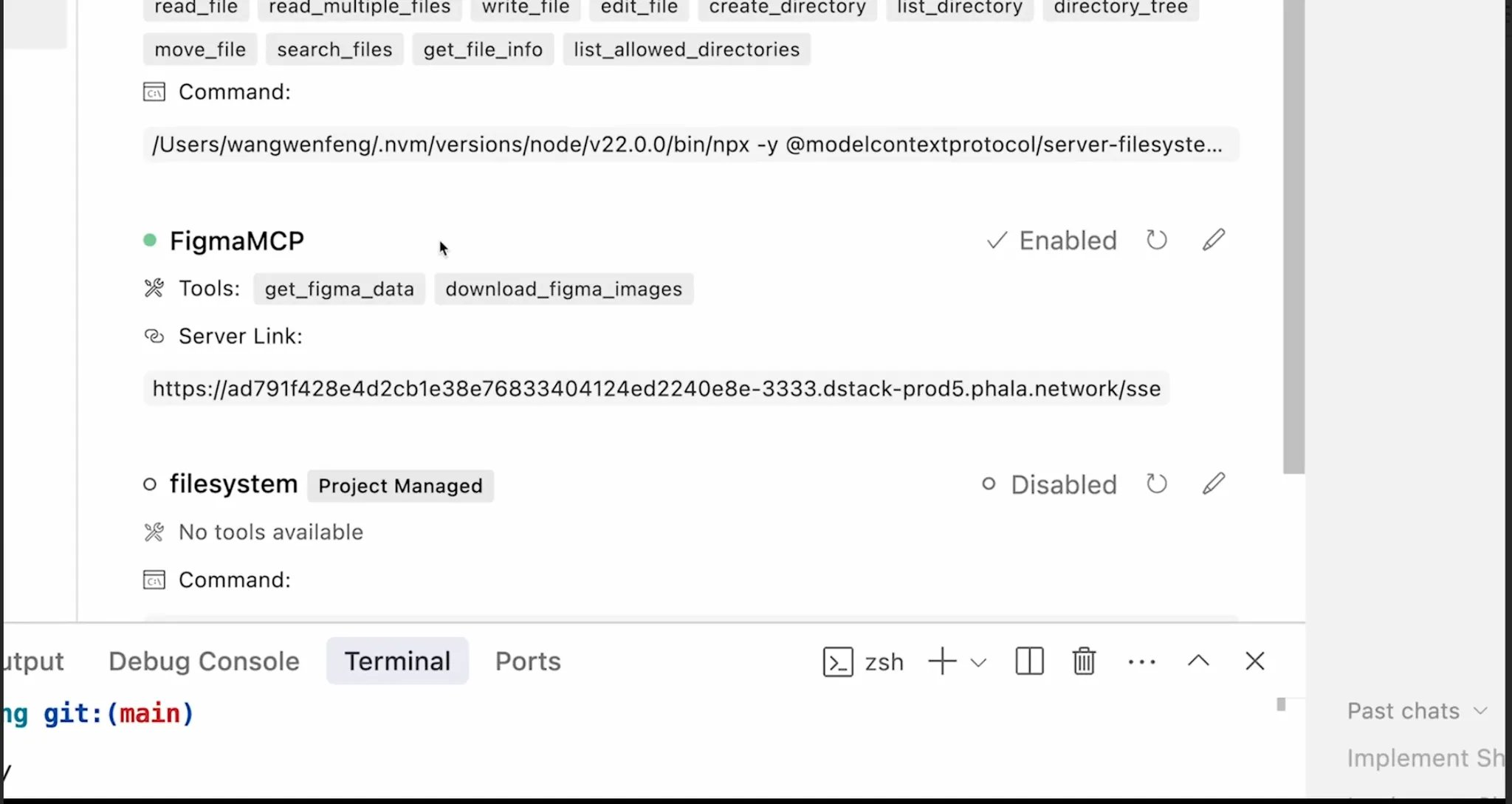
Introduction: The Evolution of AI with MCP and TEE
For developers working on the cutting edge of artificial intelligence, the challenge isn’t just building smarter models—it’s ensuring those models can operate securely, scalably, and with persistent context. Enter MCP (Model Context Protocol), a game-changing standardized protocol that empowers AI agents to interact with external tools and services in a verifiable, secure way.
Now, pair MCP with Trusted Execution Environments (TEEs), and you’ve got a powerhouse combo. TEEs, provide isolated enclaves that shield your AI’s data and computations from prying eyes, even on untrusted hardware. Together, MCP and TEEs unlock a new frontier for AI: secure, persistent, and modular workflows that scale effortlessly.
In this blog, we’ll dive into what MCP is, why it matters, and how our newly launched hosting platform at MCP Hosting Service which builds on the MCP server foundation laid earlier in our step-by-step guide.
We’ve taken MCP server deployment to the next level with a sleek, developer-friendly interface and TEE-backed security—ready for you to launch your AI projects with confidence.
What is MCP? A Developer’s Primer
It provides a unified interface for AI agents to tap into capabilities like:
- Web browsing and data retrieval
- File system operations
- External API integrations
From MCP official document we know that MCP follows a client-server architecture where:
- Hosts are LLM applications (like Claude Desktop or IDEs) that initiate connections
- Clients maintain 1:1 connections with servers, inside the host application
- Servers provide context, tools, and prompts to clients

But MCP isn’t just about connectivity—it’s about context. MCP can, in fact, operate in tandem with Retrieval Augmented Generation (RAG). For example, an MCP server has the capability to interact with a vector database or a search engine. This interaction enables the model to execute search queries as a distinct tool, rather than having to implicitly depend on retrieval for each and every prompt. This integration opens up new possibilities for more efficient and targeted information access and utilization within the model's operations, enhancing its functionality and adaptability in handling various tasks and data requirements.
Why MCP + TEE?
Running modular AI agents at scale demands more than just compute power. You need infrastructure that keeps sensitive data private, maintains continuity across sessions, and flexibly integrates with new tools as your AI evolves. This is where the combination of MCP + TEE becomes a powerful foundation.

Together, they bring three critical capabilities to the table:
- Security: TEEs ensure that your AI’s sensitive context—like user data or proprietary logic—stays locked away from external threats, even on shared infrastructure.
- Scalability: MCP’s modular design lets you plug in new tools and services without rewriting your AI’s core logic.
- Persistence: With MCP, your AI can pick up where it left off, making it ideal for long-running tasks or multi-step workflows.
In short, MCP + TEE is the foundation for AI that’s not just smart, but also secure and stateful—perfect for the next generation of intelligent applications.
Real-World Applications: Where MCP Shines
Before we get to our new hosting platform, let’s explore why MCP matters in the real world. Here are some killer use cases that’ll spark your imagination:
- Autonomous AI Agents: Imagine an AI assistant that remembers your preferences, tracks your ongoing projects, and adapts to your workflow over time. With MCP, it’s not a pipe dream—it’s a deployable reality.
- Multi-Agent Systems: Need a research AI, a trading AI, and a scheduling AI to work together? MCP lets them share context seamlessly, creating a collaborative ecosystem of specialized agents.
- Decentralized AI Networks: In Web3 and crypto, MCP-powered AI agents can operate independently across decentralized nodes, maintaining context for tasks like market analysis or user onboarding.
- On-Chain AI Smart Contracts: Integrate AI with blockchain applications—think agents that track transactions, enforce logic, or automate decisions, all while keeping their state intact.
- AI-Powered Customer Support: Build chatbots that don’t just parrot canned responses but actually understand a customer’s history, preferences, and needs over months of interactions.
These applications aren’t theoretical—they’re within reach, especially with the right tools. That’s where our new platform comes in.
Introducing Our MCP Server Hosting Platform
Building on the groundwork from the basic Jupyter notebook MCP deployment guide, we’ve launched MCP Hosting Service —a one-stop solution for developers to deploy MCP servers with in-built TEE-backed security.
What We’ve Built
- In-built Verification: You can verify the attestation report of the MCP server before you copy the configuration to use in your client.
- Streamlined Deployment: No more wrestling with complex configs. Our intuitive UI guides you through launching an MCP server in minutes—just fork the repo and deploy your own one with clicks.
- TEE Integration: Every server runs in a Trusted Execution Environment by deploying the MCP server on Phala Cloud, ensuring your AI’s data and computations are shielded from external access.
- Developer-Centric Features: Pre-built templates, API integrations, and real-time logs make it easy to customize and monitor your deployment.
How It Works
Ready to get your MCP server up and running? Our platform makes it a breeze with just two key steps:
- Copy the Config to Your Own MCP Client: Start by visiting MCP hosting website here. Here, you’ll find a pre-configured MCP setup tailored for TEE-backed security. Simply copy the configuration file—think of it as a blueprint for your AI’s capabilities, from tool integrations to context persistence. Paste it into your own MCP client (whether it’s a local setup or your preferred development environment), tweak it to fit your use case, and you’re ready to roll. For example following screenshot shows how you can config it on the Cursor:

- Fork and Deploy Your Own on Phala Cloud: Want to take it live? Fork our open-source MCP server template directly from the platform, customize it to your heart’s content, and deploy it on Phala Cloud with a single command. Phala Cloud’s TEE infrastructure ensures your server runs in a secure enclave. You’ll have a production-ready MCP server in no time—complete with real-time monitoring and the flexibility to scale as your project grows.
That’s it! Whether you’re testing locally or deploying to the cloud, our platform bridges the gap between Phala Cloud’s foundational guide and a fully operational MCP server—streamlined, secure, and developer-friendly.
MCP Product Demos
We've built some exciting demos showcasing MCP servers running in TEE. Just hit Fork and deploy with a single click on our MCP Hosting Service!
Figma MCP server hosted in TEE
Imagine running Figma MCP server running in TEE then calling on AI agent to generate code. See the tweet below for a quick walkthrough.
Deploy Jupyter Notebook in TEE
This guide will walk you through how to deploy a Jupyter Notebook remote MCP server to TEE.
Get Started Today
Ready to supercharge your AI projects? Head over to MCP hosting in TEE and deploy your first MCP server. Follow the Phala Cloud guide for a deeper dive into the nuts and bolts, then use our platform to bring your vision to life.


Let’s build the future of AI—securely, persistently, and at scale. What will you create?